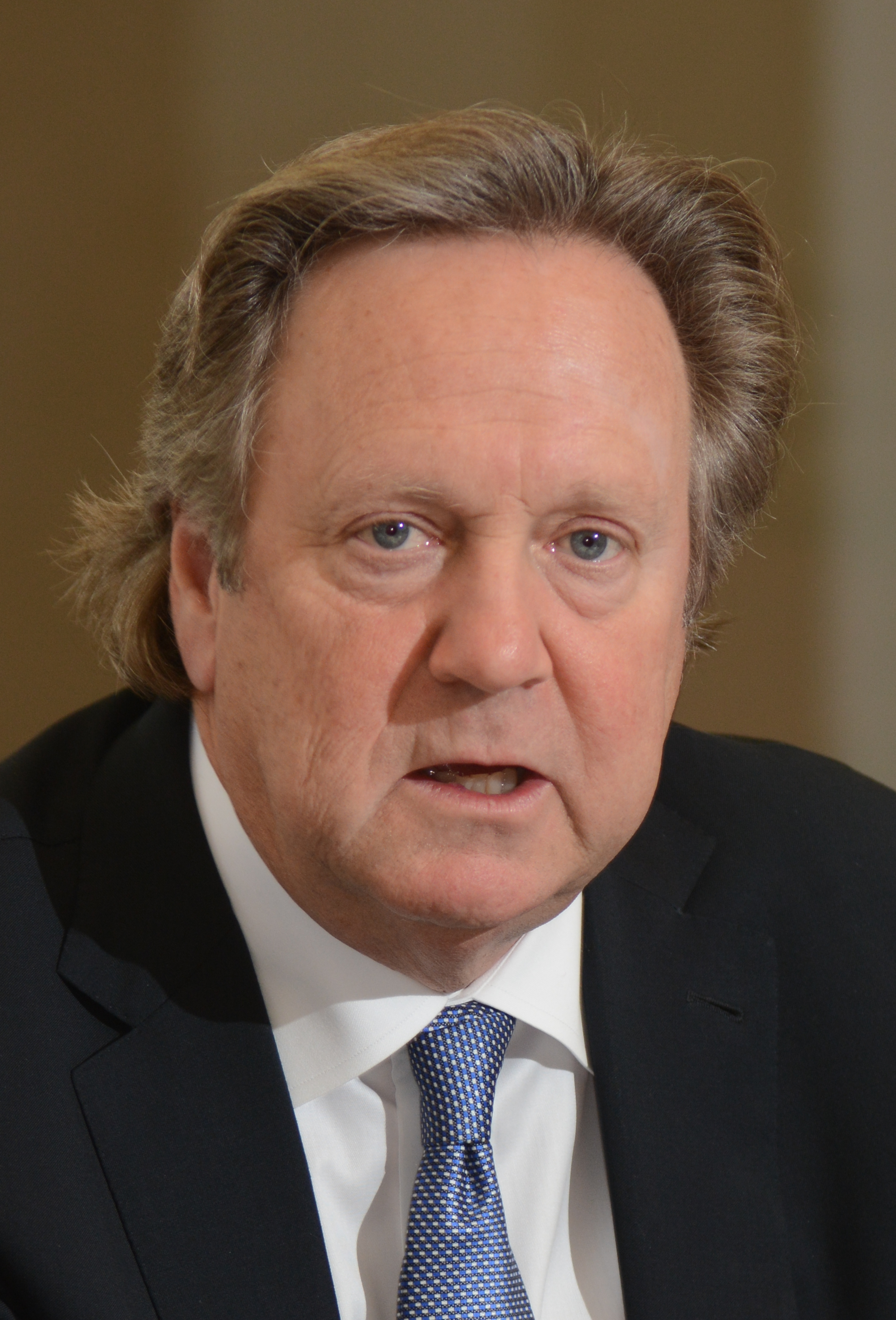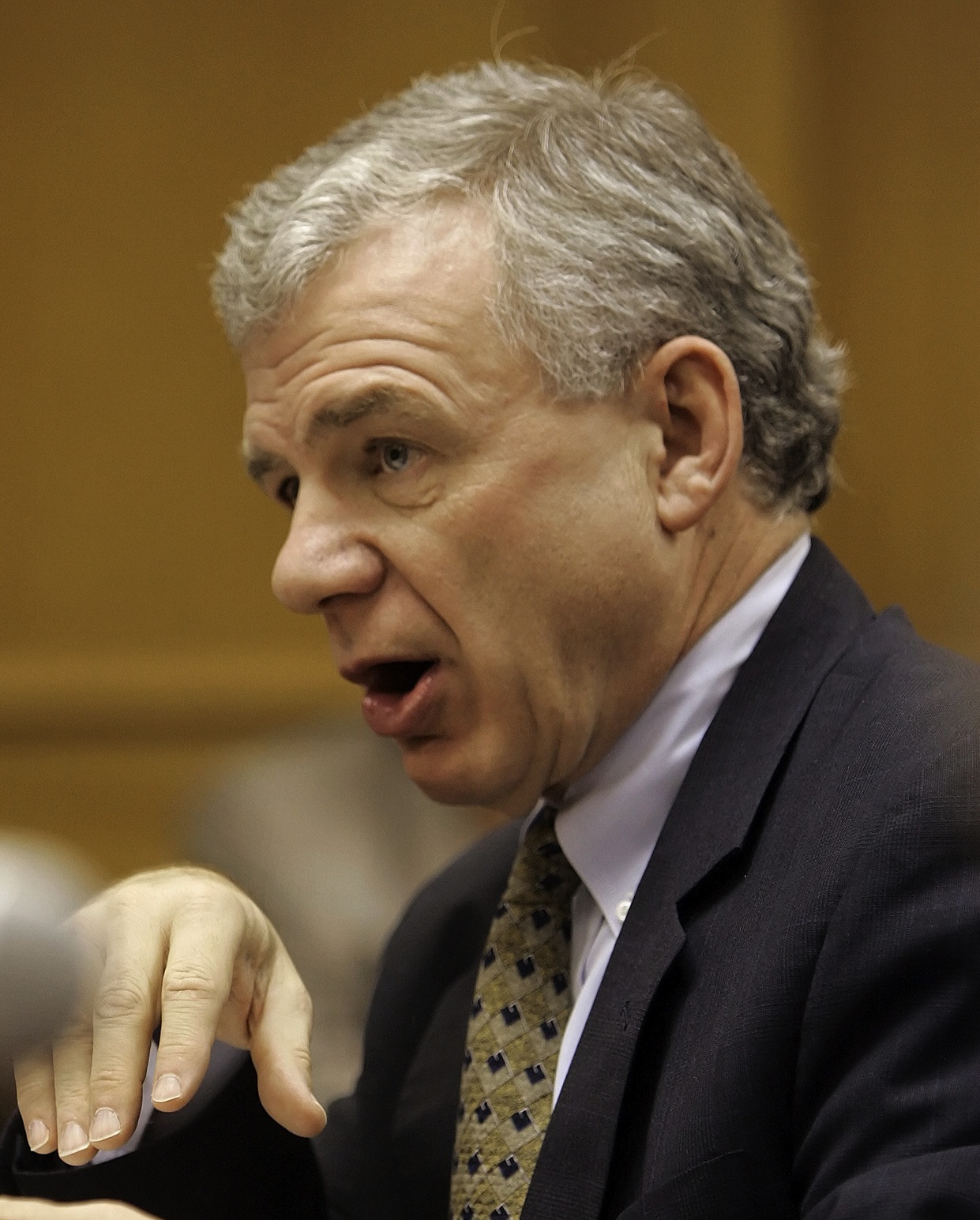Gracey, Kilbride: Plan vital for work force, economic development and health care system stability
Insure Tennessee, the innovative health insurance proposal Gov. Bill Haslam announced in December, will help secure a healthier future for the Volunteer State.
Covering hundreds of thousands of uninsured working Tennesseans will increase access to doctors for preventive care and lead to improved health outcomes.
Tennessee ranks a woeful No. 45 in the U.S. in the health of its residents. For decades, we've seen a trend of chronically poor health, including high rates of preventable conditions that are devastating to lives, expensive to treat and a threat to our future.
Improving health is essential and should be supported by every individual and entity - public and private - that has a stake in the economic progress and quality of life of Tennessee. So, access to care is certainly a step in the right direction.
Perhaps it's less appreciated why Insure Tennessee makes such good business sense for the state and our economy.
Unlike the Affordable Care Act or traditional Medicaid expansion, Gov. Haslam's proposed Tennessee-specific plan is market-based, promotes personal responsibility and addresses costs. It is a big step toward true health care reform.
The administration, working with all stakeholders, found a way to leverage additional Medicaid funding - billions of dollars in taxes already paid by Tennesseans - without creating any new taxes or additional state spending.
There are several compelling reasons Insure Tennessee makes financial sense for the state. The first is expanded access for the working poor - people with jobs who lack health coverage, because either they earn too much money to qualify for TennCare, or they lack access through an employer.
Second, the foundation of Insure Tennessee (and a distinct departure from traditional Medicaid) is a direct focus on encouraging healthy behavior. Much of U.S. health care spending is directed toward treatment of chronic conditions caused by unhealthy lifestyle choices. The cost of treating preventable disease and illness in Tennessee is estimated at about $6 billion annually.
Moving hundreds of thousands of lives into an environment that rewards preventive care and better lifestyle choices will increase quality of care while reducing cost. Personal responsibility is a market-based principle that could lead to innovation in the existing TennCare program to improve health outcomes and save taxpayers money.
Third is that Insure Tennessee will stabilize Tennessee hospitals by reducing the amount of uncompensated care they provide. This program will address a real hardship that exists for many Tennessee hospitals under tremendous financial pressure, especially some rural facilities on the verge of closing their doors.
Financially healthy hospitals strengthen our overall health care system and the state's quality of life in general.
That's an important factor for economic development. Tennessee is very competitive in industry recruitment, though it will become increasingly harder to sell companies on investment in rural Tennessee unless there is a demonstrated effort to improve workforce health and to stabilize health centers. In this regard, Insure Tennessee responds to an economic risk.
BlueCross and the Chattanooga Area Chamber of Commerce are part of a very large coalition of business, health care industry and civic groups working hard to inform the public and help Gov. Haslam gain approval from the General Assembly for Insure Tennessee. You can learn more about our efforts at www.coalitionforahealthytennessee.com.
We urge legislative support. The bottom line is this plan will improve the health of Tennessee, directly benefiting the health of our rural and urban community workforces and the economy.
Bill Gracey is president and chief executive officer of BlueCross BlueShield of Tennessee. Bill Kilbride is president and chief executive officer of the Chattanooga Area Chamber of Commerce.
Fox: Jobs, revenue and new income among benefits of Haslam plan
The Center for Business and Economic Research recently examined characteristics of people who would potentially be insured under the Insure Tennessee Plan. The plan would extend eligibility for public health insurance to all working-age adults earning less than 138% of the federal poverty level who are not currently covered by TennCare. In a separate study, we found that cost was the most important reason that Tennesseans lack insurance, particularly among the working poor, and Insure Tennessee reduces this obstacle.
About 473,000 working-age adults would become newly eligible for public insurance under Insure Tennessee, and over 200,000 individuals may choose to acquire public insurance. The eligible population is mostly white and male and is nearly evenly divided among cities, suburbs and rural areas. Veterans comprise about 5 percent of those eligible. The group also is less
healthy than those who do not qualify for TennCare or Insure Tennessee. They are less likely to report good or excellent health and are more likely to have reported poor physical health in the past 30 days. This is at least partially due to lesser access to health care -- respondents see doctors less often and have a lower probability of getting a flu shot, as examples.
Our analysis yielded some potentially surprising results. Among our findings are that the Insure Tennessee population is an important part of the work force, as the labor force participation of this population is approximately the state average.
The eligible population is more likely than average to have unemployment spells, but most of the workers with a job were employed for at least nine months during 2013. The eligible population has a higher than average propensity to receive food stamps, but this occurs mostly as individuals seek employment.
Many in the Insure Tennessee population do not have insurance through their employer or require a 'stop-gap' form of insurance between jobs, and cannot afford private health insurance because of their low incomes. The eligible population is likely in considerable need of access to affordable health care, but is less likely to have health insurance than the rest of the population, raising concerns that sickness can prevent this willing population from being employed.
Access to affordable health care and timely physician advice may make a large difference in the Insure Tennessee population's ability to work and be healthy in the future.
We identified a range of expected benefits from Insure Tennessee for the health status and quality of life of the state's population including:
Improved access to health care and quality of life for the working poor
Improved efficacy of public health interventions (e.g., vaccines)
Increased efficiency of medical care delivery and utilization
Increased effectiveness of preventative care in averting debilitating chronic illness
Lower uninsured rates among veterans
Increased financial stability for rural hospitals
Tennessee's economy can also benefit from Insure Tennessee. If the newly-eligible population utilizes medical care at the same rate as those currently enrolled in TennCare, implementing the Insure Tennessee Plan will provide about:
$1.14 billion in new health care revenues
$909 million in new income for residents of the state
15,000 full-time equivalent jobs
These are important benefits that should be considered as the state evaluates possible health insurance coverage under Insure Tennessee.
William F. Fox is director for Center of Business & Economic Research at the University of Tennessee in Knoxville.
Buyer beware: Five things to know about Haslam's Medicaid expansion
On Feb. 2, the 109th Tennessee General Assembly will gather for a special session to determine the fate of Gov. Bill Haslam's proposed expansion of Medicaid under Obamacare.
Tennessee taxpayers did their part last year, pushing lawmakers to pass the "Stop Obamacare Act," requiring the governor to seek legislative approval before unilaterally implementing an expansion of the government health insurance program. Of course, the governor would have Tennesseans believe we can have our cake and eat it too - take federal expansion dollars, but spend them how we see fit. The problem is that's not how it works when you wheel and deal with Washington bureaucrats.
Here are the top five things Tennesseans should know about "Insure Tennessee":
1. These are not "free" federal dollars that another state's taxpayers receive if Tennessee fails to claim "our share." There is no pot of Medicaid money sitting in Washington waiting for us to grab. Every dollar used to finance a state Medicaid expansion is a dollar borrowed from other countries and charged to our national credit card. And who will be left paying the bill? Our children and grandchildren, with interest.
2. Estimates indicate that between 200,000 and 400,000 Tennesseans will be eligible for this expansion. And the vast majority of them are able-bodied, childless adults of working age. With 40 percent of Tennessee doctors now refusing to see new Medicaid patients, these folks will add to the plight of our state's most vulnerable, who are already enrolled in the program and struggle to find a physician to treat them. Expect the added strain on the program to cause long lines with heartbreaking unintended consequences for those who are truly disabled or otherwise unable to help themselves.
3. The "Volunteer Plan" or voucher for those who qualify to purchase employer coverage is exactly that - an incentive for employers to drop their share of insurance costs down to 50 percent so that taxpayers can "volunteer" to pay the rest. Not only is this bad policy, but it's a misleading talking point. The Foundation for Government Accountability estimates that just 16 percent of new Medicaid enrollees are working full time, while many of those working part time are not eligible for their employer's health plan. They will instead be dumped onto the traditional Medicaid rolls..
4. Hospitals claim they will pick up the bill for any state costs over the two-year pilot program, but what happens when costs exceed projections? (Ask Arkansas, Illinois, Utah.) Hospitals claim they need expansion money to survive, but with Medicaid reimbursements decreasing, putting thousands more onto the program only kicks an empty can down the road.
Plus, the funding scheme used to obtain the federal dollars is sketchy at best. Hospitals front the state money through an "assessment fee," and the state turns around and shows the feds that it has its share of the pie in order to secure more taxpayer money from Washington. In the end, the hospitals get their money back, plus billions more from taxpayers. Our own two U.S. senators have called for ending this funding mechanism in the past, yet it is the primary means for funding the proposed Medicaid expansion. If the assessment fee comes under attack from Congress, state taxpayers will have no choice but to step in and pick up the tab.
5. It is easier to ask for forgiveness than permission. At least that's what Governor Haslam is likely hoping. Once the pilot program expires, he will need reauthorization from Washington, but if the program fails to deliver, will legislators have political license to kick more than 200,000 people off health care? And even if they do, is it right to give someone a "free" rug only to rip it out from under them?
Ultimately, legislators must decide if we burden more Tennesseans with Obamacare's broken promises, failed schemes, and unsustainable policies, or whether we march towards more freedom, greater access, and better care. Taxpayers will be watching.
Lindsay Boyd is the director of policy at the Beacon Center of Tennessee, the state's premier free market think tank. Learn more at BeaconTN.org/Medicaid-Expansion.




